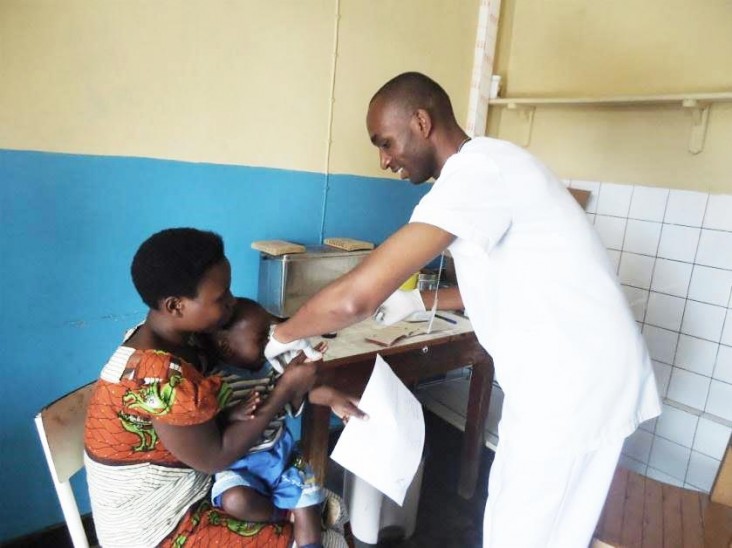
James Maniriho is a laboratory technician at the Muhoza Health Center in Rwanda's Northern province. To earn his monthly salary of approximately $150, James works nine hours a day, five days a week. His laboratory unit receives 120 to130 patients each day, who are served by just four technicians. The work is tiring and he and his colleagues often feel overwhelmed.
Maniriho and his co-workers felt underappreciated by their supervisors, but this changed when the performance-based financing (PBF) program was launched in 2008 at the center. Through this system, Maniriho is now eligible to receive a monthly bonus, which ranges from $75 to $150, depending on the performance of his unit and the health facility. Performance measures include punctuality, technical accuracy and team work.
“This premium helps me very much, and recently permitted me to pay for additional schooling so I could earn a degree in public health. We are also more motivated at work, and the system challenges us to improve the quality of our daily tasks by putting more emphasis on certain rules, like arriving on time,” said Maniriho.
In addition to improving services and staff motivation, the PBF bonus system enabled the health center to buy equipment to improve the quality and range of services.
The USAID-funded, Integrated Health Systems Strengthening Project and its predecessor program have provided technical and financial support to implement and expand the system. PBF is now in use nationwide, in nearly 500 public health facilities.
By increasing the income of health providers, PBF can improve motivation, reduce emigration of qualified staff, and even encourage staff to work in remote areas.
The national PBF database, which stores information on quality assessment of each health facility, shows that the average quality of health services, as measured by a set of indicators, increased from a score of 31 out of 100 points to 88 between 2006 and 2011.
Launched in November 2009, the Rwanda Integrated Health Systems Strengthening Project is designed to improve the health of Rwandans through five components: data management and use, health financing, human resources for health, quality improvement, and decentralization. The project also improves access to quality health services. The goal is that, when the project ends in 2014, services will be sustainable and efficiently managed by well-trained staff, and the health system will be able to address the country’s public health priorities and improve the health of the Rwandan population over the long term.







Comment
Make a general inquiry or suggest an improvement.